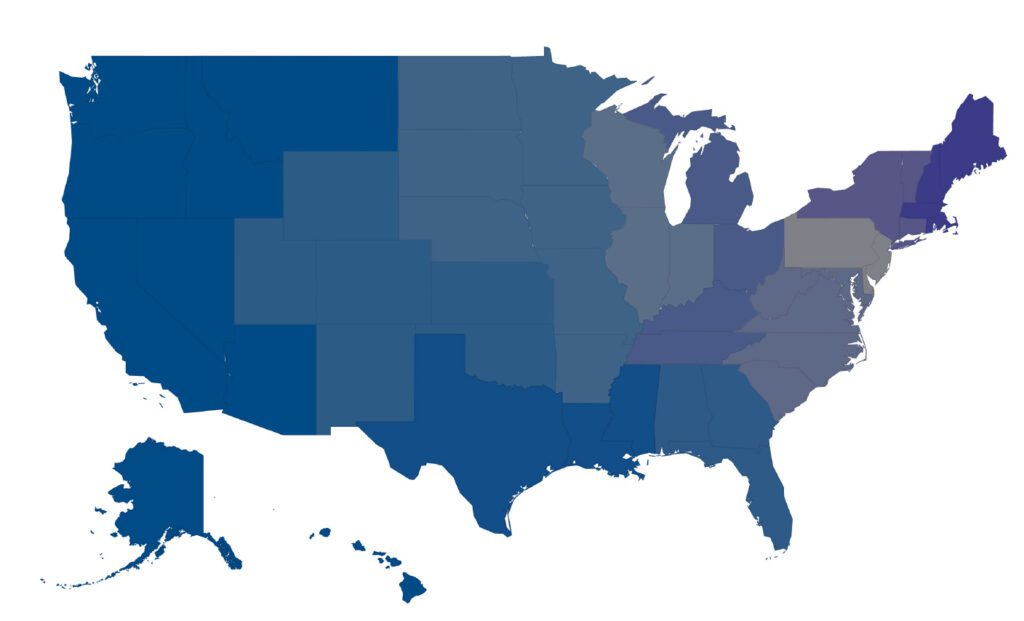West Virginia
West Virginia Code §50-5-12
“(a) Any person may appeal the judgment of a magistrate court to the circuit court as a matter of right by requesting such appeal not later than twenty days after such judgment is rendered or not later than twenty days after a decision is rendered upon a motion to set aside such judgment. Such person shall be required to post a bond with good security in a reasonable amount not less than the reasonable court costs of the appeal nor more than the sum of the judgment and the reasonable court costs of the appeal, upon the condition that such person will satisfy the judgment and any court costs which may be rendered against him on any such appeal. The bond and the circuit court filing fee shall be collected by the magistrate court clerk or deputy clerk at the time the appeal is filed, and be forwarded to the clerk of the circuit court along with other appropriate documents regarding the appeal. No bond shall be required of any governmental agency or authority or of a person who has been permitted to proceed without prepayment in accordance with the provisions of section one, article two, chapter fifty-nine of this code. If an appeal is not perfected within such twenty-day period, the circuit court of the county may, not later than ninety days after the date of judgment, grant an appeal upon a showing of good cause why such appeal was not perfected within such twenty-day period. The filing or granting of an appeal shall automatically stay further proceedings to enforce the judgment.”
West Virginia Code §58-5-14
“(a) When required by the court, an appeal shall not take effect until bond is given by the appellants or petitioners, or one of them, or some other person, in a penalty to be fixed by the court or judge by or in which the appeal is allowed or entered with condition: If a supersedeas be awarded, to abide by and perform the judgment and to pay to the opposite party, and to any person injured, all such costs and damages as they, or either of them, may incur or sustain by reason of said appeal, in case such judgment, or such part, be affirmed, or the appeal be dismissed, and also, to pay all damages, costs and fees, which may be awarded against or incurred by the appellant or petitioners; and if it is an appeal from a judgment dissolving an injunction, or dismissing a bill of injunction, with a further condition, to indemnify and save harmless the surety in the injunction bond against loss or damage in consequence of his or her suretyship; and with condition when no supersedeas is awarded to pay such specific damages and such costs and fees as may be awarded or incurred: Provided, That whenever an appeal is awarded in any action or suit wherein a judgment for the payment of money has been entered against an insured in an action which is defended by an insurance corporation, or other insurer, on behalf of the insured under a policy of insurance, the limit of liability of which is less than the amount of said judgment, execution on the judgment to the extent of the policy coverage shall be stayed until final determination of such appeal and no execution shall be issued, or action brought, maintained or continued against such insured, insurance corporation or other insurer, for the amount of such judgment so stayed, by either the injured party, the insured or the legal representative, heir or assigns of any of them, during the pendency of such proceeding, provided such insurance corporation, or other insurer, shall:[…]
(b) Except for bonds required under section four, article eleven-a, chapter four of this code, an appeal bond required by a court in accordance with this section may not exceed the amount of the total judgment, which includes the actual judgment, plus costs, interest and fees: Provided, That for all verdicts returned or judgments rendered on or after July 1, 2007, in which the judgment exceeds $50 million, the court shall require an appeal bond of no more than $50 million. For purposes of this subsection, multiple judgments resulting from cases that have been consolidated or aggregated for purpose of trial proceedings shall be treated as a single judgment.[…]”

**In Federal cases the bond requirement is governed by Federal Rule of Civil Procedure “62(b) Stay by Bond or Other Security. At any time after judgment is entered, a party may obtain a stay by providing a bond or other security. The stay takes effect when the court approves the bond or other security and remains in effect for the time specified in the bond or other security.”**
The information contained on our site is for general information purposes, and you should consult with your attorney for the most up to date civil code or local rule that applies to your case.
Choose the State...
Experience the CSBA Difference today
Expert Guidance • First-Class Service • More Options








